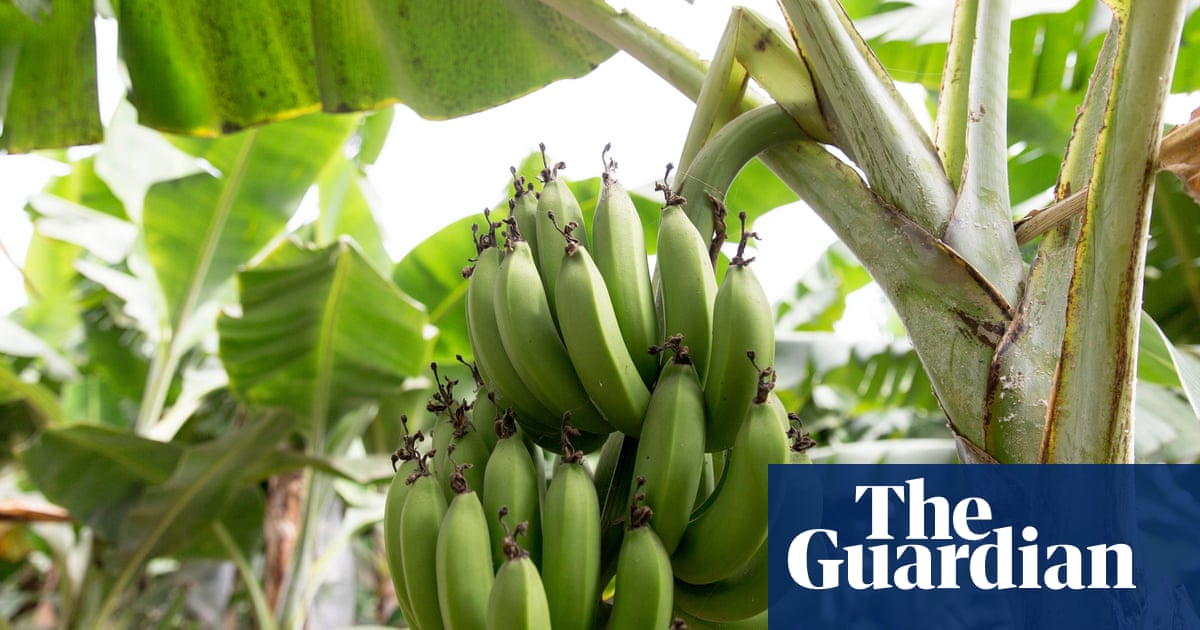The climate crisis is threatening the future of the world’s most popular fruit, as almost two-thirds of banana-growing areas in Latin America and theCaribbeanmay no longer be suitable for growing thefruitby 2080, new research has found.
Rising temperatures, extreme weather and climate-related pests are pummeling banana-growing countries such asGuatemala,Costa RicaandColombia, reducing yields and devastating rural communities across the region, according to Christian Aid’s new report, Going Bananas: How Climate Change Threatens the World’s Favourite Fruit.
Bananas are the world’s most consumed fruit – and the fourth most important food crop globally, after wheat, rice and maize. About 80% of bananas grown globally are for local consumption, and more than 400 million people rely on the fruit for 15% to 27% of their daily calories.
An estimated 80% of banana exports which supply supermarkets around the world come from Latin America and theCaribbean– one of the most vulnerable regions to extreme weather and slow-onset climate disasters.
And yet the crop is under threat from the human-made climate crisis, and threatens a vital food source and the livelihoods of communities that have contributed virtually nothing to the greenhouse gases driving global heating.
“Climate change has been killing our crops. This means there is no income because we cannot sell anything. What is happening is that my plantation has been dying. So, what has been happening is death,” Aurelia Pop Xo, 53, a banana grower inGuatemala, told Christian Aid researchers.
Bananas, especially the cavendish, are sensitive fruits. They require a temperature range between 15C and 35C (59F and 95F) to thrive, and just enough water – but not too much. They are sensitive to storms, which can cause a banana plant to shred leaves, making it much harder for the crop to photosynthesize.
While there are hundreds of banana varieties, the cavendish accounts for the vast majority of exports since it was chosen by the fruit conglomerates for its decent flavor, hardiness and high yield. It’s this lack of genetic variation that makes bananas particularly vulnerable to the rapidly changing climate.
The climate crisis directly harms growing conditions – and contributes to the spread of fungal diseases that are already decimating crops and livelihoods. Black leaf fungus can reduce the ability of banana plants to photosynthesize by 80% and it thrives in wet conditions, making bananas at risk from erratic rainfall and flooding. Rising temperatures and changing rain patterns are exacerbating another fungus, fusarium tropical race 4, a soil-borne microbe which is devastating entire cavendish plantations across the world.
Sign up toDown to Earth
The planet's most important stories. Get all the week's environment news - the good, the bad and the essential
after newsletter promotion
Christian Aid is calling on wealthy polluting nations most responsible for the climate crisis to urgently transition away from fossil fuels and fulfil their obligations to provide financing to help communities adapt to the changing climate.
“Bananas are not just the world’s favourite fruit, they are also an essential food for millions of people. We need to wake up to the danger posed by climate change to this vital crop,” said Osai Ojigho, Christian Aid’s director of policy and campaigns. “The lives and livelihoods of people who have done nothing to cause the climate crisis are already under threat.”
